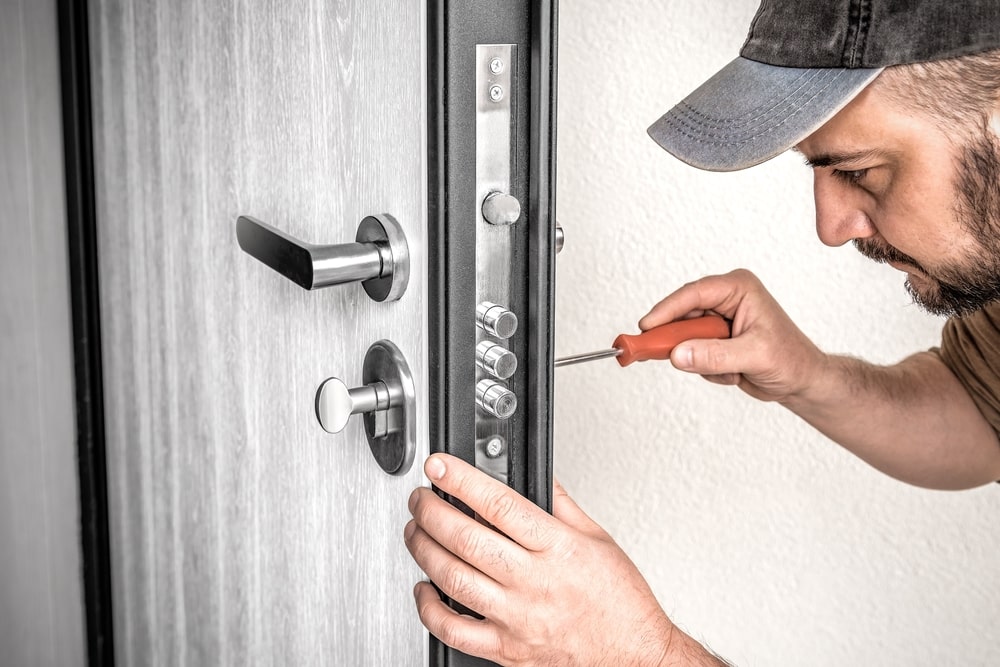Selling your locksmith business demands careful consideration of various factors. From valuation to understanding market dynamics and navigating the intricacies of the sale, this article will help you unlock the path to a successful transition.
Key Takeaways
- The value of your locksmith business depends on various factors, like profit, loyal customers, location, equipment, and employee retention.
- To get the most out of your sale, highlight factors that increase appeal for potential buyers.
- Working with a business broker is an excellent way to streamline the process of selling your business.
Table of Contents
Valuing Your Locksmith Business
Valuation is critical when you sell your locksmith business because it requires an acute understanding of your financials and the unique dynamics within the industry. To get a good idea of its fair market value, start by conducting a thorough assessment of your business’s financial health. Examine:
- Revenue trends
- Profit margins
- Operational costs over the past few years
Potential buyers will scrutinize these figures to gauge the business’s stability and growth prospects. Other aspects that may be considered in your valuation include tangible assets, the loyalty of your customer base, and the reliability of your brand. If you’ve spent years cultivating these areas of your business, it’ll pay off when it comes time to sell and part ways.
When working with a professional business broker, like our experts at Sunbelt Canada, you can ensure that your locksmith business receives an accurate valuation with the most appropriate methods (or combination of methods).
Business Valuation: What’s Your Business Worth? ...
Factors That Affect The Price of a Locksmith Business
To get a better idea of the elements that impact the sale price of your locksmith business, let’s break down the following:
Revenue and Profitability
The cornerstone, or key, if you will, in determining the price of your locksmith business. While financial performance isn’t everything, it’s a significant driving force. Prospective buyers need the numbers in front of them. Revenue and profitability metrics help assess the business’s earning potential and overall financial health.
In the locksmith industry, where competition can be fierce, a consistent and upward-trending revenue stream and adequate profit margins are powerful indicators of your business’s viability.
Customer Base
A locksmith business won’t hold up against the competition if it doesn’t have a consistent, reliable customer base. A diverse and loyal clientele is a valuable asset that extends beyond mere numbers. Buyers are often very interested in the quality of relationships and the potential for recurring business.
A well-maintained database of clients, particularly those from commercial and residential sectors, indicates your business’s reputation. Highlighting long-term contracts or service agreements can further enhance the perceived stability and predictability of future revenue. Collect positive reviews or testimonials where possible to instill confidence in potential buyers.
Location
The adage, “location, location, location,” holds particular significance when assessing the value of a locksmith business. The geographic setting in which your business operates can significantly influence its attractiveness to prospects.
Consider the need for locksmith services in your area—urban centres may present higher demand due to population density, while suburban or rural locations might offer a more specialized market. Proximity to commercial hubs and residential neighbourhoods can impact the perceived value of your business. A central and easily accessible location can contribute to operational efficiency and response times—a critical factor in emergency locksmith services.
Equipment and Inventory
The value of your locksmith business extends beyond its services to include the tangible assets that facilitate its operations—the equipment and inventory. The quality, condition, and modernity of the tools and technology you employ in your locksmith services can significantly impact market value.
Buyers will likely be drawn to a business equipped with state-of-the-art tools, key-cutting machines, and other specialized equipment. Why? Up-to-date technology enhances efficiency and signals a commitment to staying current in an industry where advancements can make a substantial difference for your clients.
Additionally, a well-maintained stock of quality locks, keys, and other security products demonstrates preparedness for immediate service delivery, especially in emergencies. During negotiations, it can be helpful to provide a detailed inventory list, highlighting any specialized or high-demand items.
Owner Involvement
This is often an overlooked factor in determining the worth of a locksmith business. Buyers tend to seek a balance between a business that thrives under the guidance of an involved owner and one that has established systems enabling a smoother ownership transition.
Achieving the balance of perfect owner involvement can be tricky. While hands-on owners bring a wealth of industry knowledge and a personal touch to customer relationships, excessive dependence on a single person for critical functions can raise concerns. Buyers may perceive a business heavily reliant on the owner’s presence as a potential risk, especially if this individual’s departure could disrupt operations.
Growth Potential
The current state of your business is just one part of the picture. When selling, it’s essential to showcase the capacity of your locksmith business to grow and adapt to changing market dynamics.
Whether it’s expanding into new geographic areas, introducing innovative services, or targeting specific customer segments, proof of a clear growth strategy can significantly enhance the perceived value of your business.
Employee Expertise
Your employees’ expertise and skill set are critical factors in determining the value of your business. A knowledgeable and skilled workforce with years of experience enhances the quality of services and contributes to the overall operational efficiency and reputation of the business.
Employee retention is equally vital. A stable team minimizes the disruptions that can accompany changes in ownership, providing reassurance to potential buyers. If applicable, highlight any ongoing training programs or success plans demonstrating your commitment to the continued development and retention of skilled personnel.
Marketing Your Locksmith Business
Effectively marketing your locksmith business is crucial to attracting potential buyers and showcasing its value in the competitive marketplace. Here are some key considerations to keep in mind:
- Professional branding: Investing in a professional and cohesive brand identity creates more appeal for your business.
- Online presence: In today’s digital age, a solid online presence can help attract new customers, increasing the value of your business.
- Positive reviews: Encourage satisfied customers to leave testimonials to build credibility and trust in your business.
- Transparent financial documentation: Prepare detailed and transparent financial documentation that can be shared with serious buyers. This includes profit and loss statements, tax returns, and other relevant records. Clear and accurate information builds trust and confidence.
- Engage with a business broker: Consider enlisting the services of a business broker. These professionals can help market your business with confidence, attract qualified buyers, and navigate the complexities of the sales process.
- Showcase your growth potential: Clearly articulate the growth potential of your locksmith business. Whether expanding services, entering new markets, or adopting emerging technologies, illustrating a roadmap for future growth can make your business more appealing to potential buyers.
Insider Tips on Selling a Business in Canada Selling a business is complicated. You need a professional who can walk you through the minefield of details.
Should You Hire a Broker to Sell Your Locksmith Business?
In short, yes. Working with a business broker is a strategic move for selling your locksmith business. They bring expertise in business valuation, market analysis, marketing, and negotiations.
In Summary
When it comes time to sell your locksmith business, the key to a successful transaction is an accurate valuation, a comprehensive understanding of the factors that affect price, and the ability to market everything it offers to potential buyers.
At Sunbelt Canada, our seasoned experts are here to ensure a smooth transaction. Your business is your pride and joy and deserves expert guidance through the sale process. Reach out to us today to learn more.





